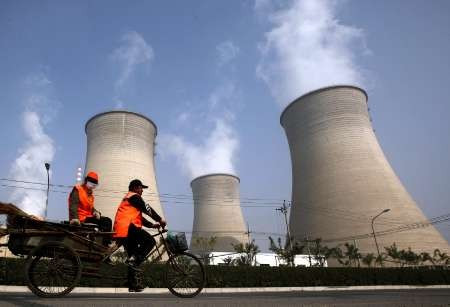Climate change: Chinese sulphur emissions hide real damage global warming is doing

New research has revealed that all current data regarding climate change may be inaccurate as sulphur emissions from Chinese coal powered power stations mask the real data.
The research was lead by Prof Robert Kaufman, at Boston University. The team speculated that the current sulphur emissions emanating from China's power plants are in reality having a cooling effect on the Earth's atmosphere thus negating the effects of global warming.
The researchers behind the new paper went on to state that the impact of the sulphur emissions combined with the sun's current cooler cycle stage and the South Atlantic's change from a El Nino to the La Nina weather system have meant that the current recorded temperatures used in climate change studies are artificially low.
If the research's findings turns out to be true, then China's recent steps to clean up its sulphur emissions combined with the forecast change in the sun's 11-year cycle could lead to a sharp rise in temperatures.
"If anything the paper suggests that reductions in carbon emissions will be more important as China installs scrubbers [on its coal-fired power stations], which reduce sulphur emissions. This, and solar insolation increasing as part of the normal solar cycle, [will mean] temperature is likely to increase faster," commented Kaufman.
As is always the case with the global warming debate, Kaufman's research has not been met with universal approval. The current mainstream view is that there has been no global warming since 1998. In this line of thought, year on year temperature changes are caused by natural rather than man-made causes.
Dr David Whitehouse, science editor of the Global Warming Policy Foundation, commented on the research: "Despite what the authors of this paper state after their tinkering with an out of date climate computer model, there is as yet no convincing explanation for the global temperature standstill of the past decade."
In response, Kaufman told the BBC:
"People can choose not to believe in [man-made] climate change - but the correct term here is 'belief' - believing is an act of faith, whereas science is a testing of hypotheses and seeing whether they hold up against real world data.
"Even before this paper there wasn't much scientific evidence for denying climate change, and now I don't see any credible scientific contradiction - if people don't believe it, it'll be because they choose not to believe it."
© Copyright IBTimes 2025. All rights reserved.




















